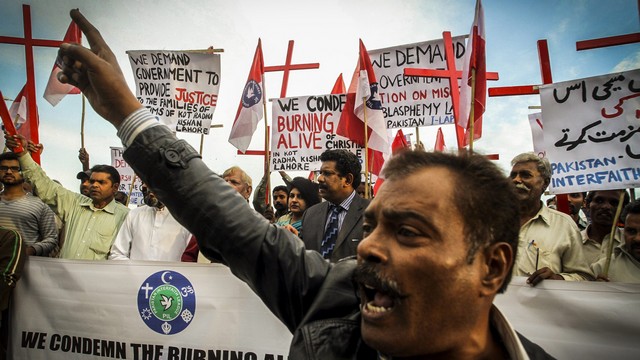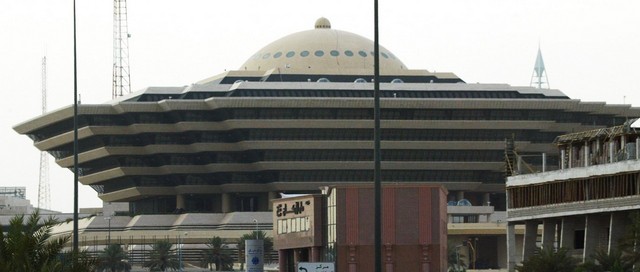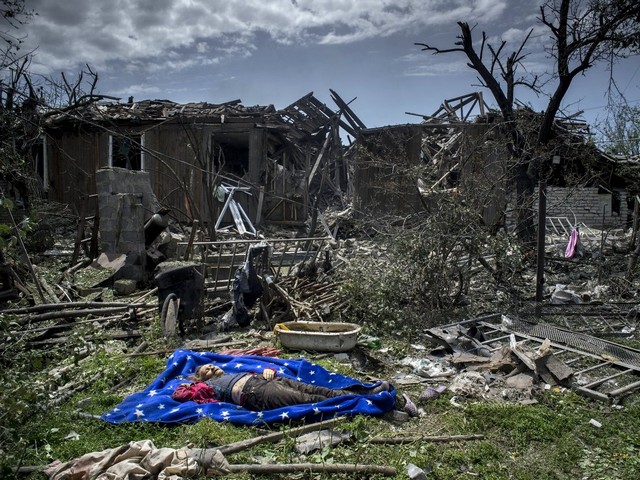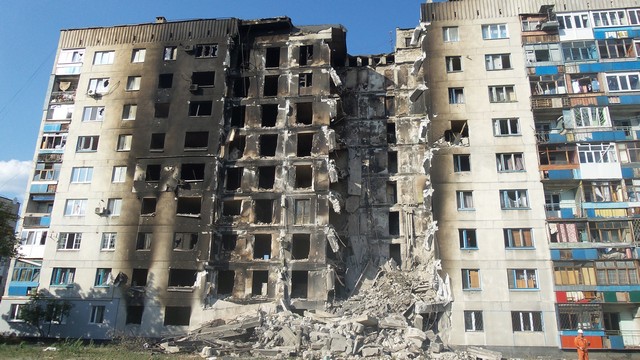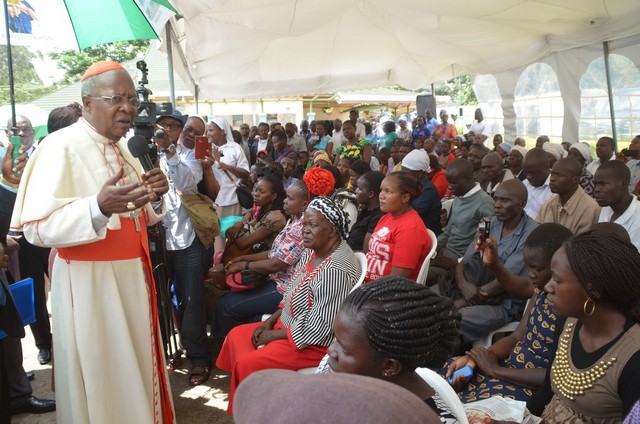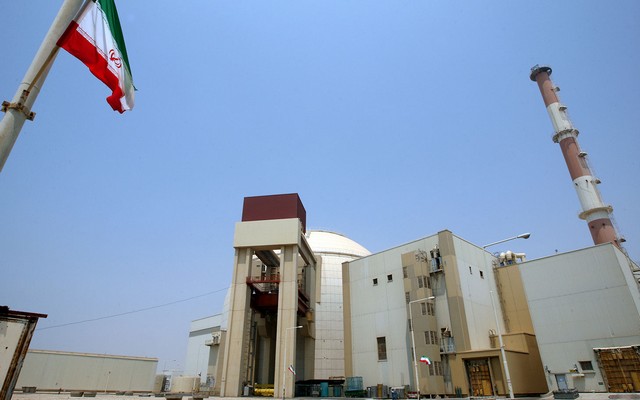By Andre Vltchek
It is much easier to rule over those people who have lost all their dignity.
There is no reason to fear resistance where cynical consumerism, lack of knowledge, and constant anxiety are shaping the behavioral patterns of a nation; of most of its citizens.
The West made an art form out of controlling the world. Its once rough and simple ‘divide and rule’ tactics have reached, with time, greatvirtuosity. What Richter, Rostropovich or Argerich did for the art of Western classical music, people like Brzezinski, Kissinger and Negroponte matched with their brilliance in the art of destruction and terror.
In today’s world, everything is upside down. Brothers fear brothers, guerilla fighters are made to spy on each other, and heroes who are fighting forthe survival of the planet are labeled by Western regime as demagogues, strongmen or even terrorists.
The Empire successfully mobilized the most regressive elements in each society that it controls.It upheld religions, archaic family compositions and feudalist power structures in order to make rebellion almost impossible.
Albert Camus, a French philosopher, made one of the most important statements of the 20th Century, when he declared: “I rebel, therefore I exist!”
Rebellion is the engine that propels societies and individuals forward.To take it away, to shut it off, means to condemn people and entire nations to stagnation, even to regression.
Which is, of course, the main goal of the Empire. Which is why it employs and grooms entire armies of local collaborators.
*
The Empire created some amazing sights, all over the world: depressing, gore-filled scenes. For much of the planet, it is Halloween every day, every day and every night.
The West has many allies, many collaborators!
Bizarre bearded dudes with machineguns and portable missile launchers, decapitating infidels and blowing up the world heritage sites. That is what the Empire has been trying, painstakingly, to turn Islam into, with full-hearted support of its deranged and blood-drenched allies in the Gulf. First they murdered, sidelined or overthrewprogressive, socialist Islamic leaders, and later they manufactured the most fundamentalist brands, from Al-Qaida to ISIS. Bravo! Great success. As long as the oil flows, as long as the Western weapons are sold and ‘defense budgets’ remain above one trillion. As long as there is always someone people can be told to be scared of, someone who can be used as a justification for new weaponry, and a new post-colonialist and imperialist arrangement of the world.
Or look at those weird preachers and priests in Surabaya, Manila, or in Uganda and the Democratic Republic of Congo. “The poor are poor because God hates them. The rich are rich because God loves them”, I heard the other day in Indonesia, whilefilming one huge Christian gathering that was taking place in a mall. Pentecostal implants from the West, ‘prosperity gospel’,Evangelicals; fanaticsresembling the Inquisition-era bigots – there is an entire panoptic of monstrous Christian freaks available in the client states. If destabilizing China is the main goal, of course they are always there and ready! Ukraine, Uganda, Indonesia, Egypt, Oceania? No problem: always ready, always there, always handy!
Or those brands ofmilitant Buddhism, in countries like Thailand, where religion beganlosing its grip on power many decades ago, but was reintroduced just in time to join the ideological and real warfare during the Vietnam War! It is once again“big” now, as it used to be centuries ago, and ‘suspiciously’ fully supportive of the feudal elites and the throne, all those staunch allies of the West! And what about that brand of horrid feudal usurpers, the Lamas, paid directly by the US government and fully and continuously supported by the Western liberals?
Then there are all those monarchs reigning over the territories from the Gulf to Southeast Asia.Many of them were directly implanted, watered and groomed by the West, or at least upheld, armed and if needed, turned into deities.
Extreme forms of religion and feudalism are essential for effective control of the population. The Brits were well aware of it, and that is why they gave full support to Wahhabis and other local extremists and bigots.“Caste is often thought of as an ancient fact of Hindu life, but various contemporary scholars argue that the caste system was constructed by the British colonial regime”, argues Frank de Zwart from Leiden University.That is also why the Brits were the most effective of all the colonizers: they knew how to get the worst from the locals!
Ancient forms of oppression, from the caste system in India to family oppression, even terror, in Africa, Indonesia or Pakistan, keep people from learning, from becoming individuals, from daring, from mobilizing and fighting for the better world.
And to make sure that the oppression imposed and upheld by the West in foreign countries, is not challenged even at home, the West’s propagandists invented so-called “political correctness” which was soonturned into sacrosanct dogma. This is how it works, in summary: Attack those extreme religious implants from the West, in some poor country controlled by Washington or London, and you will be branded as intolerant, patronizing or at least as insensitive. Attack some brutal monarchy that is surviving only because the West needs it and supports it, and you will be accused of not respecting local culture and the way of life of local people. Say or write honestly, that in some country, after a Washington-administered coup, and after several decades of continuous brainwashing campaign, that the majority of people were successfully converted to idiots, and you will be described as a racist and bigot.
The collaborators, mainly consisting of the top brass military, of business elites, of religious gurus, ‘academics’ who were indoctrinated and bought while on the scholarship abroad, journalists and pop artists, are fully protected by political correctness. They represent the culture of some destroyed culture, “they are the culture”. Mad monarchs, religious freaks, merciless feudal patriarchs – they cannot be touched, because ‘people love them’, ‘people revere them’. Of course, after hundreds of millions of dollars were spent by the West to uphold the most regressive theories, afterthe children of the elites were put through the standardized brainwashing ‘education’ and afterthe poor majority was put through almost no education at all, little wonder that everybodyis thinking the same, that people “love” what they are suppose to “love”, from abusive husbands and fathers, to military mass murderers, insane religious fanatics and ruthless robbers repainted and rebranded as CEO’s.
*
If a spaceship filled with advanced, refined and objectively thinking beings coming from outer space would visit our planet, the visitors would be surely horrified by observing those individuals who are ruling such countries as Indonesia or Uganda, or those in the Gulf. They would most likely ask: “What kind of Empire is it, that is employing such vile butlers and servants?”
Nobody is laughing or puking, only because all of us, even the most outspoken critics of the regime, were already somehow conditioned. We are all behaving, and to some extent playing the game.
None of us starts rolling on the floor, in total amusement, pointing fingers at the television screen that is showing dozens of former Indonesian generals and officers, responsible for the genocides of 1965, or those in East Timor and Papua, now holding some of the highest positions in their land.
Nobody is throwing up when the UN Secretary General of the United Nations flies to Kampala or Kigali and begs countries responsible for genocide of millions of innocent people in the neighboring Democratic Republic of Congo (according to his own UN staff which produced several detailed reports on the subject), to please not withdraw their ‘peacekeeping forces’ (operating and getting royally paid) from their missions all over Africa.
Nobody is fuming and drawing political cartoons depicting the horrific nature of the Saudi regime and its arch-henchmen, who are giving orders to blast Yemen, killing hundreds and most likely thousands of innocent people, simply because they are Shi’a and because they are demanding social justice.
No Hollywood horror film could match the monsters that are ruling many corners of the globe, controlling, raping, robbing and brainwashing their own people, on behalf of the Empire.
Collaborators…
How many of those cars, those Ferraris and the latest BMWs, in some miserable country that is being fully plundered by Western mining and oil companies, are running on gas, and how many on blood?
How many of those “proud” professors holding doctorates from Western universities, are actually teaching – giving knowledge – and how many are infiltrating the education systems all over the world, as China’s Minister of Education, Mr. Yuan Guiren, wrote recently in a Communist Party journal “Seeking Truth”? “Young teachers and students are key targets of infiltration by enemy forces,” Mr. Yuan argued on Feb. 2, 2015.
They are. All over Africa, Asia, the Middle East. Fortunately, at least in Latin America, the enemy forces have been mostly identified.
How many magazines, newspapers and television stations in the Middle East, Southeast Asia or East and West Africa are actually there to inform people, and how many are serving, dutifully, the propaganda apparatus of the Empire? It is enough to check the sources of the foreign news coverage, incountries like Philippines, Malaysia, Indonesia, Thailand, the entire Gulf, or even India, and the answer becomes obvious.
*
The level of collaboration with the West is scandalous; it is shocking.
The most notorious forms of collaboration and spite towards the people can be found in what I lately call “the Belt”, which consists of the client states and semi-colonies, spreading from Southeast Asia, to East and West Africa, with the sub-Continent and the Middle East in between. In that part of the world, countries that refused to collaborate (Indonesia before 1965, Iraq, Iran, Egypt, Syria, Somalia, Congo under Patrice Lumumba, to name just a few) were muzzled, raped, destroyed, annihilated and leveled with the ground.
In that ‘belt’, there is no shame left, and no dignity.
For those of us who worked during the racist anti-Muslim massacres in Gujarat, in 2002, the fact that Mr. Modi(Chief Minister of Gujarat during the mass murder) became the Prime Minister of India, is not only outrageous, it is monstrous. But he is, in his heart, a neocon, a neoliberal, a “nationalist”, not unlike his counterpart in Japan, whose allegiances are more towards the global capitalism and Washington, than towards his own impoverished, humiliated and robbed people. And that is why the Empire supports him.
And what should be said about Egypt, Bahrain, Thailand or Rwanda, to mention just a few client states?
Intellectual cowardice, repulsive egoism and servility in the countries like Malaysia or Indonesia are beyond obscene. They are grotesque, perverse. Almost entire, pathetically shallow, art establishments in Jakarta and Kuala Lumpur are living from Western handouts, from so-called “funding”.“Artists” and “intellectuals” say and write and film what is expected of them, what the West pays them to produce, and then of course, what sells. In the meantime, corporate gangsters are plundering land with absolutely no obstacles, murdering indigenous people if they cross their way, and then build their palaces abroad from the booty, all in the plain daylight, with no fear and no shame. There is no real ‘opposition’ in Indonesia and Malaysia. Intellectuals, with some rare exceptions of people like Djokopekik( theMarxist Indonesian painter), in both countries, were turned into spineless cowards.
It gets even worse in Uganda and Rwanda, countries that are murdering millions in the Democratic Republic of Congo, on behalf of Western governments and companies. It gets equally bad in India, whose modern history is dotted with genocides, including the ongoing one in Kashmir.
Most of the countries of that “Belt” are treating their citizens (particularly poor ones) with absolute spite. Most of them, including India, are police states. But they are hailed as “democracies” by Western media and regime, because they are allies, client states and because they collaborate.
In almost all countries of The Belt, collaborators hold power. Without exception, these horrible regimes are mixtures of capitalism, feudalism and fascism.
*
Since WWII, the panoptic of the pro-Western puppets is truly horrifying. It would take an entire book to list at least the most “important”, the most bloodstained names of the collaborators with Western regime. Let us recall just a few, those responsible for the most repulsive atrocities:
Trujillo in Dominican Republic, ‘Papa Doc’ Duvalier and ‘Baby Doc Duvalier in Haiti, Batista in Cuba, Somoza in Nicaragua, the military junta in Brazil, Pinochet in Chile, Videla in Argentina, Stroessner in Paraguay, the South African apartheid “governments”,Moi in Kenya, Kagame in Rwanda, Museveni in Uganda, Mubarak in Egypt, Zine Ben Ali of Tunisia, Hadi of Yemen, present-day rulers of Saudi Arabia, Bahrain, Qatar, Jordan and Oman, Mobutu SeseSeko of Congo, Shah Reza Pahlavi of Iran, Lon Nol and Pol Pot of Cambodia, almost entire Thai leadership after the WWII, Marcos of Philippines, Osama bin-Laden of Saudi Arabia, a series of pro-US dictators in South Vietnam, Suharto in Indonesia…
And what about the other side? As horrible as those individuals were, mentioned above, people who resisted and fought for freedom of the mankind were some of the greatest human beings of the 20th Century but that did not spare many of them from being murdered, and then smeared by the Empire and its lackeys. Many of them were aided by the Soviet Union and China in their efforts to break shackles of their people:
Nasser of Egypt, Patrice Lumumba of Congo, Julius Nyerere of Tanzania, Ernesto “Che” Guevara of Argentina, Salvador Allende Gossens of Chile, DilmaVanaRoussef of Brazil, Nelson Mandela of South Africa, Daniel Ortega of Nicaragua, Evo Morales of Bolivia, Hugo Chavez of Venezuela, Ho Chi Ming of Vietnam, Mao Zedong of China, Fidel Castro of Cuba, Mosaddegh of Iran, Thomas Isidore Noël Sankara of Burkina Faso.
To compare two lists would, if one werereally willing to see and to compare, destroy all remaining illusions about the West “supporting and aiding democracy”. For years, decades and centuries, the West was actually aiding the most extreme forces of oppression, of terror and nihilism.
*
Direct support given by the West to fascist governments, to right-wing militaries, to religious zealots and feudal family and power structures, is actually something that is visible and easily detectable, at least if one wants to see and to notice.
The West operates in concealed ways,while creating and sustaining an enormous and complex group(or call it army) of collaborators in all its client states, as well as in those countries that have been selected for destabilization and destruction.
It is done through “support for arts and culture”, by funding those artists who are willing to produce empty pop, to put form over substance, refusing to address social and political problems of the country and to bring them to the masses.
It is done through the UN and countless international NGO’s thatare, in many loyal and servile countries (like Kenya), hiking salaries and benefits of the local staff, and this way are helping to manufactureand sustain the new elites. These elites (well paid and therefore loyal), instead of serving their people, are actually enjoying the tremendous gap created between them and the impoverished, often starving masses.
It is done through corrupting journalists, by sending them on all-paid ‘training courses’ to London, New York, Paris or Tokyo.
It is done through “education”, through scholarships given to the selected groups of young people who are willing to accept “Western democratic values” and fully abandon revolutionary struggle at home. These people, after returning “home”, are usually joiningthe ‘fifth column’, infiltrating government offices, academia, and mass media. Be it in business or in the state sector, they are serving their foreign masters and their own pockets, instead of their nations.
It is done through direct corruption, because corruption, as was described by John Perkins in his “Confessions of an Economic Hit Man”, is one of the main tools utilized by the Western imperialism. The more corrupt, the more pampered are the elites in a client state, the more reliablethey become.
The Western colonialist establishment knows perfectly well “how to deal with the locals”, how to tickle the vanity of the elites in the Middle East, the sub-Continent, Africa and Southeast Asia. How to make them feel “exceptional”, “enlightened”, “sophisticated”, oceans away from that “brutal and ignorant” majority. Deep rifts are created, in order to prevent nations from unitingagainst external enemies.
Elites are sipping cafe lattes, reading books that made it to the New York Times bestseller lists;they are boozing up, watching CNN or BBC or Al-Jazeera and doing all they can, to live “normal life”, as they see it in commercial films imported from the West.
What is grotesque is that it is actually those members of the collaborating elites all over the poor world that are “mass produced”, desperately gray, tugging the same line. They think the same, reason in the same way, and live a similarly empty existence. It is because, no matter on what continent they live, the Empire injects them with the same doctrines, makes them desire same things. Their dreams are mass-produced, and so are their loves and even their betrayals. They shop in the same malls for the same brands, eat in the same chain restaurants, watch the same stupid films and listen to similar crappy music. They use the same social media;the same phones and they succumb to the same extreme individualism. It is “me time” and “me-me-me goes first”, while millions of their compatriots are forced to live in a gutter.
Most of the collaborators support similar political ideas – almost all of them are right wing, pro-Western and neoliberal. Almost all of them are nationalists, but to them nationalism means, as they were taught by Western-style political correctness,a boastful admiration for their horrid failed states that imperialism and neoliberalism turned their exploited countries into. To them, nationalism definitely does not mean a determined fight, a struggle against the foreign dictates, for true freedom and social justice!
After working and living in many client states of the Empire, I now clearly see that even the most ‘uneducated’ farmers in the countryside are more creative, have more dignity and understanding of the world, than the collaborating urban “elites”. Simple people have their individual views, and they have at least some basic human instincts, like compassion and kindness.
The Empire is manufacturing emptiness, nihilism. It is an extremely depressing Empire. Those who are serving it, or more precisely those who are prostituting themselves with it, are actually very sad, even pathetic individuals, lacking character, integrity, and diversity.
In the same time, they are extremely brutal and selfish, and they are looting their own countries, oppressing their own people. But even power does not seem to bring them much joy.
They are scared. They don’t know exactly why, but they sense that they are doing something wrong. The more scared they arethe more power they think they need; more power and more wealth. In order to be ‘protected’, in order to be able to build fences and to hire guards, and eventually disappear to their mansions and condominiums abroad, if things explode at home.
*
In India, Indonesia, all over Africa, colonialist empires used to employ local people to control and to terrorize masses. It was more effective that way, more practical. Locals knew locals better. They spoke the languages and they knew “where it hurts” when pain was administered.
Nothing changed. The Empire still gives orders to its servants, to the elites inside the client states. It intervenes directly only when the local cadres become ‘unreliable’ and fail to oppress their people, as happened in Iraq, Libya or Syria.
The organizations like IMF and the World Bank employ great numbers of members of the elites from sub-Continent, Africa and Southeast Asia, as it is understood that they will beextremely effective and brutal towards their own people, stripping them of everything, on behalf of the Empire. They do it in order to impress their masters, or simply out of deep spite for their own people.
This arrangement will not last forever. “The Belt” is gaining a notorious reputation all over the world. Hardy anyone would want to follow its example voluntarily.
Now there isa great number of countries fighting for a better arrangement of the world. Almost all Latin America, Russia, China, South Africa, Eritrea, and Iran, refuse to succumb to the Empire. Others are joining.
No matter how brilliant the masters of the horror scenarios, no matter how well they play their flutes, no matter how many millions of servants are licking their boots, it is certain that their violent art will not be allowed to dominate the world stage for much longer.
*
Andre Vltchek is a novelist, filmmaker and investigative journalist. He covered wars and conflicts in dozens of countries. The result is his latest book:Exposing Lies of the Empire, “Fighting Against Western Imperialism”.
11 April, 2015
Countercurrents.org


